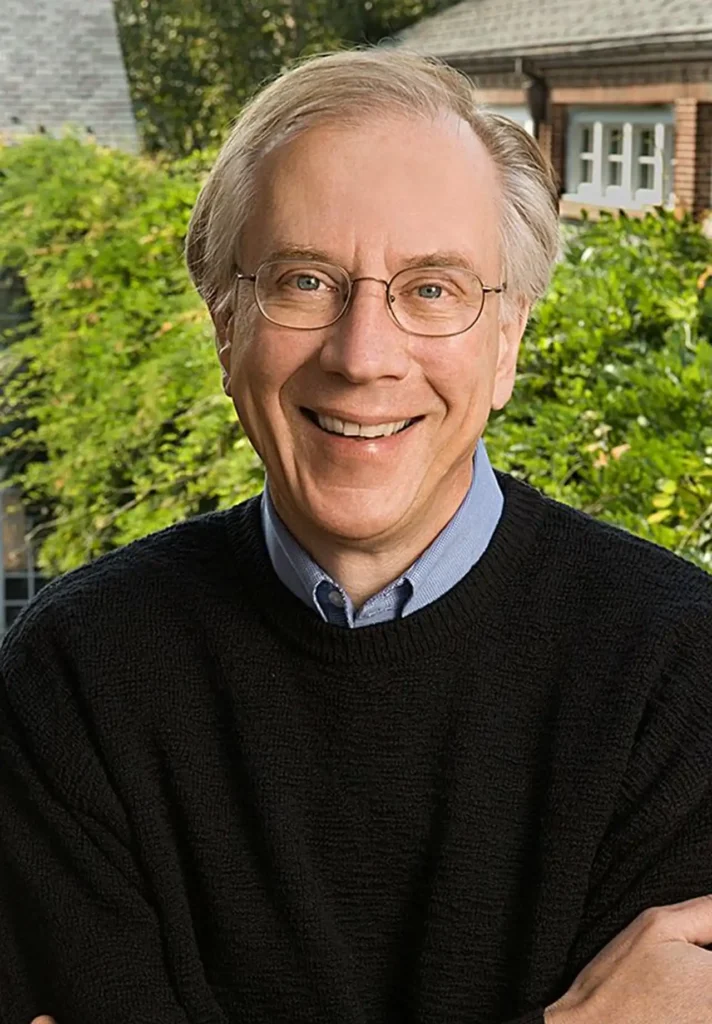by Mike Matzinger
Thomas R. Cech is an American biochemist renowned for his groundbreaking discovery that RNA can act as a catalyst, a role previously attributed solely to proteins. This pivotal finding has had profound implications for our understanding of molecular biology and has opened new avenues in biotechnology and medicine.
Born on December 8, 1947, in Chicago, Illinois, Cech grew up in Iowa City, Iowa where he earned the rank of Eagle Scout. His early curiosity about the natural world led him to engage with geology professors at the University of Iowa during junior high school. A National Merit Scholar, he entered Grinnell College in 1966, where he studied chemistry and other subjects. He graduated with a B.A. in 1970 and married his organic chemistry lab partner, Carol Lynn Martinson, finding love at the melting point apparatus. Cech earned his Ph.D. in chemistry from the University of California, Berkeley, in 1975, under the supervision of John E. Hearst, focusing his doctoral research on the biophysics of DNA.
In 1982, while at the University of Colorado Boulder, Cech discovered that RNA molecules could catalyze their own splicing, a process previously thought to require protein enzymes. This discovery of catalytic RNA, or ribozymes, challenged the prevailing dogma that only proteins could serve as enzymes. For this work, he was awarded the Nobel Prize in Chemistry in 1989, sharing the honor with Sidney Altman.
Cech’s subsequent research focused on telomeres—the protective caps at the ends of chromosomes—and the enzyme telomerase, which maintains telomere length. His lab identified the enzyme TERT (telomerase reverse transcriptase), a key component in restoring telomeres after they are shortened during cell division. Understanding telomerase has significant implications for aging and cancer research, as telomerase is activated in approximately 90% of human cancers.
Throughout his career, Cech has held several prominent academic and leadership roles. He has been a faculty member at the University of Colorado since 1978 and currently serves as a Distinguished Professor in the Department of Biochemistry. From 2000 to 2008, he served as president of the Howard Hughes Medical Institute, promoting science education and research. After stepping down, he returned to teaching and research at the University of Colorado and became the first executive director of the BioFrontiers Institute, a position he held until 2020.
Cech has received numerous accolades, including the Nobel Prize in Chemistry (1989), National Medal of Science (1995), Lasker Award (1988), Heineken Prize (1988), and election to the National Academy of Sciences (1987) and the American Academy of Arts and Sciences (1988).
https://www.nobelprize.org/prizes/chemistry/1989/cech/biographical/



